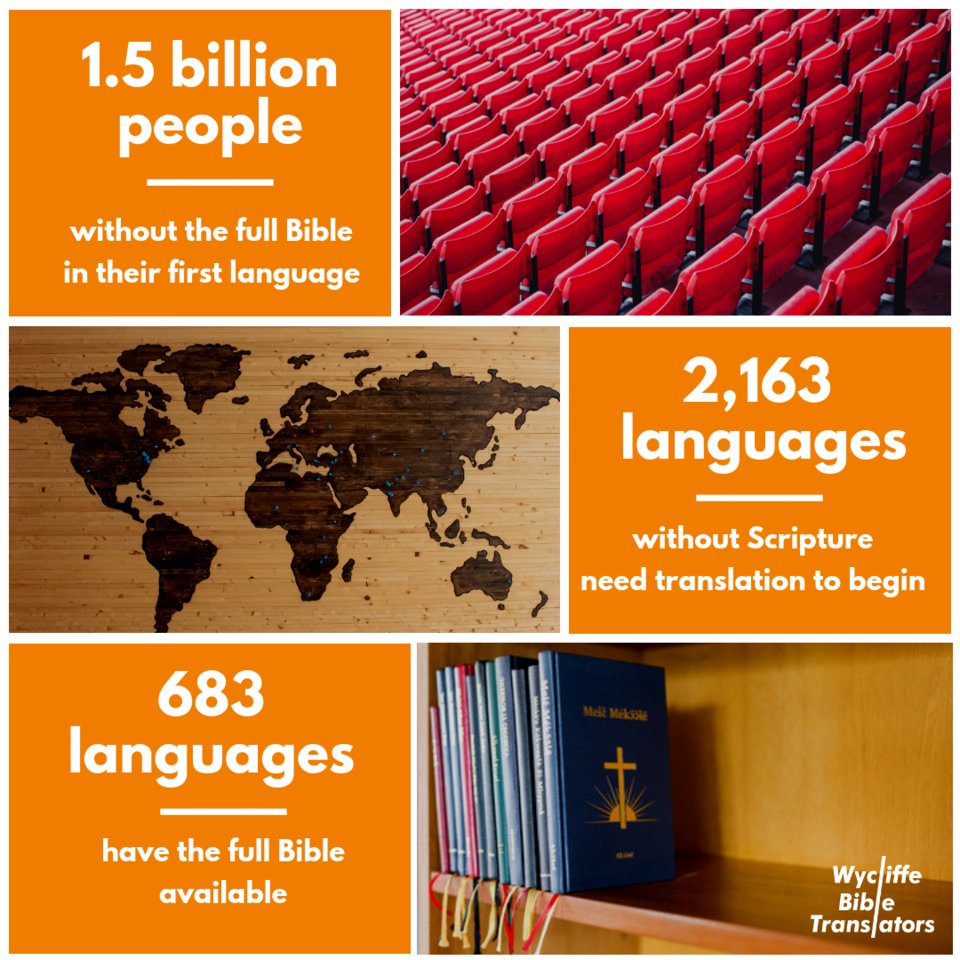
One of our Cal Poly San Luis Obispo alumni, Brian Kelly, works for Wycliffe Bible Translators as the International Oral Translation Services Coordinator.
His title is kind of a mouthful. So I asked him about it! And it was fascinating hearing about how God is using the work he does!
“It’s a lot of looking at the big picture of what do specific teams need as they do oral bible translation.
“You’re having to dialogue with a number of different organizations. For example, there’s 25,000 people involved with YWAM (Youth With A Mission) throughout the world.
“And so they have touch points with a lot of minority language communities throughout the world.
Oral Bible Translation
“Oral bible translation. What do I mean? They try to do a process that is primarily oral. They will listen to a source and record it as audio instead of writing it down.
“The final product is audio, instead of a written text.
“This is being done because a majority of the remaining language communities either have no literacy or minimal literacy. Or they have illiteracy in the national language but not their own.
“Interestingly, you can see this shift in phones themselves. Language recognition in languages besides English, French, the big ones… They’re recognizing that, if possible, people are going to be using literacy less and less.
“They’re trying to move more and more towards audio. Someone, instead of using their fingers to type a text, will record audio. You can just record the audio and send that.
“Every language is different from each other.
Example: Minority Languages in Mexico
“When you get to the minority languages of Mexico, they’re radically different from Spanish. So for years it has been that the outsider comes in, learns the language, learns it well enough.
“And usually they shouldn’t be the primary translator, but they work very closely with the transition team.
“And they’re helping them as they try and tease out what’s going on in the Greek and in the Spanish; or the Hebrew and the Spanish. And how do we find equivalents and express them in this new language? All of that is still happening.
“But these people don’t read or write. Instead of trying to translate a verse at a time, a sentence at a time, or a chapter at a time –– a person will internalize a whole section of Scripture.
“Not memorize, but internalize.
“They can picture it in their mind’s eye and identify with it. They can identify with the characters.
“You give them background information. And then they tell that in their language.
“But by internalizing it, they’re no longer thinking in Spanish.
“They’re thinking of this event and try to express it in their own language.
“You’re not making a hop from Spanish to this. You’re just using the Spanish to get the event in their head as a whole. And then they re-express it [in the minority language].
Interpretation: To Foreignize or Domesticate?
“Greek and Hebrew have their own discourse structure. You introduce new characters in a certain way, you organize the structure in a certain way. John is famous for this. You’ll be in the middle of the story and then there’s an aside.
“If you’re to try and follow the verse-by-verse structure of things, it could function. But it’s going to still feel very foreign to this minority language community. It won’t feel comfortable.
“In translation theory, for any translation – do you foreignize or domesticate when you’re translating to a new language?
“Do you move the text close to the reader?
“Or have the reader move close to the text?
“If you keep the text foreign, the reader has to do more work, but it retains the features of that original text. There’s more work on the part of the reader.
“All translation is interpretation. You’re making more interpretive decisions. You’re expressing it in a way that it feels like the author had been from our community, had just written this, had been a disciple there with Jesus.
You’re making more interpretive decisions. You’re expressing it in a way that it feels like the author had been from our community, had just written this, had been a disciple there with Jesus.
Big Picture
“The last 20 year or so, we – humanity – have been able to get a sense – we can now see the whole picture. That’s not to say we see it how God sees it. We’re just trying to be strategic and intentional about our work.
“You don’t need people to learn to read or write. You don’t need them to have something that an outsider produces. Ideally, because they’re stories, people just naturally resonate with them.”
How many people have access to Scripture in their first language?

There is known active translation and/or linguistic development happening in 2,659 languages worldwide. Staff from Wycliffe Global Alliance are currently involved in at least 2,139 of these programs.
Join Brian’s Support Team
If you’d like to support Brian and the work that Wycliffe is doing to provide the Word of God to unreached people groups, you can reach out to him at
[email protected]
